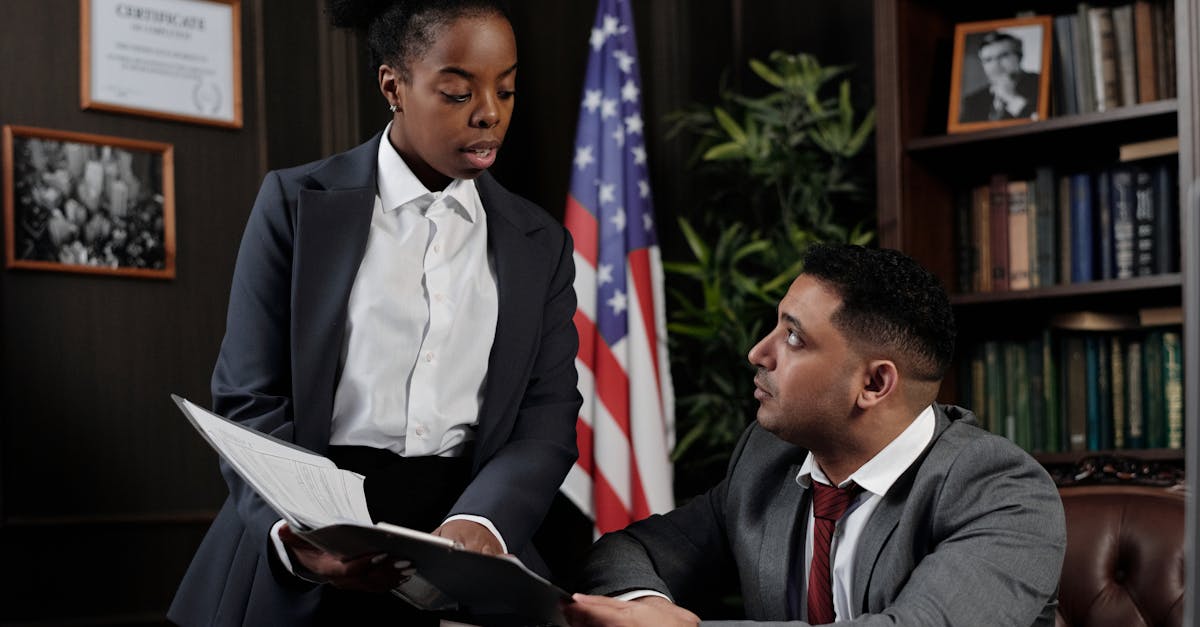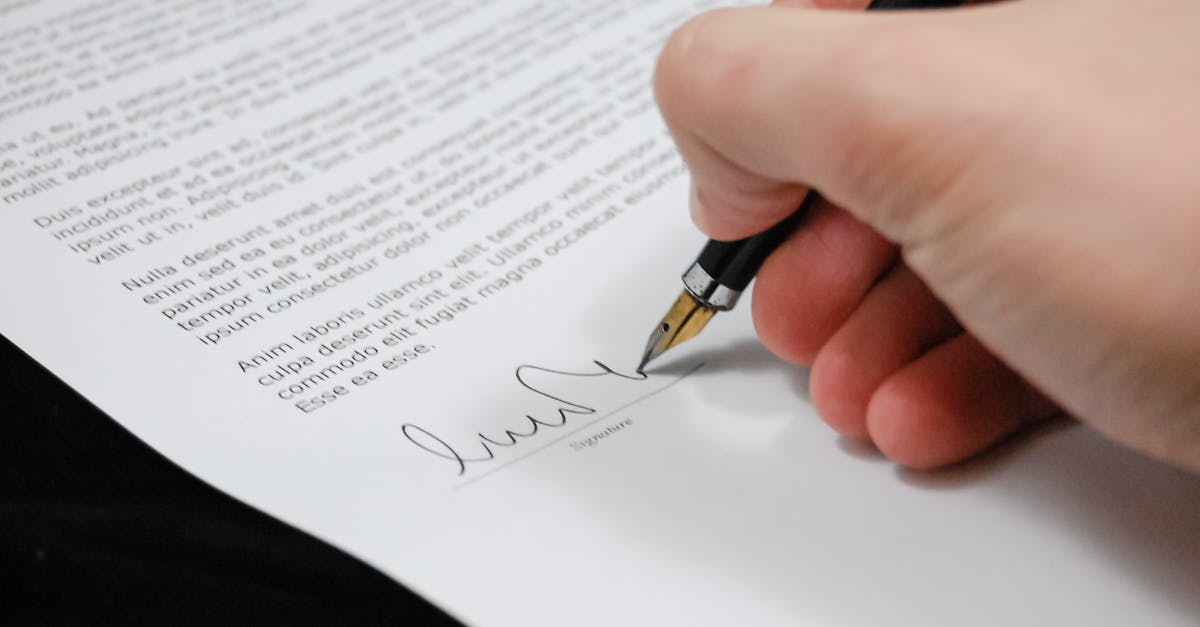
Alternatives to Hiring a Lawyer
Drafting legal documents in a clear and precise manner can be a viable option for individuals seeking alternatives to hiring a lawyer. Online resources and templates are available to assist individuals in creating basic legal documents such as wills, leases, or contracts. While these resources can be helpful, it is crucial for individuals to thoroughly understand the contents of the document and ensure that it aligns with their intentions.
Moreover, seeking guidance from legal document assistants or paralegals can be another avenue for individuals looking to draft legal documents without the assistance of a lawyer. These professionals can provide valuable insights and ensure that the document is formatted correctly and includes all necessary components. However, it is important to note that legal document assistants and paralegals are not licensed attorneys, and their scope of practice may be limited in certain legal matters.
Mediation and Arbitration Services
Mediation and arbitration services offer alternative avenues for dispute resolution outside of the traditional legal system. In these processes, a neutral third party facilitates communication between the parties involved and helps them reach a mutually agreeable solution. Drafting legal documents in the context of mediation and arbitration requires a precise articulation of the agreed-upon terms to ensure clarity and enforceability.
Engaging in mediation or arbitration can be advantageous as it often provides a quicker and more cost-effective means of resolving disputes compared to litigation. However, it is crucial to note that the terms and agreements reached through these alternative methods should still be carefully documented. When drafting legal documents in mediation and arbitration, parties should pay close attention to detail and seek legal guidance if needed to safeguard their interests and ensure compliance with relevant laws and regulations.
Validity of SelfWritten Legal Documents
Validity of Self-Written Legal Documents
Drafting legal documents in any legal matter without the guidance of a lawyer is a common practice among individuals seeking to save on legal costs. However, the validity of these self-written documents can often come into question, particularly if the wording is vague or unclear. When crafting legal documents such as contracts, wills, or powers of attorney without legal assistance, it is crucial to ensure that the language used is precise and unambiguous to prevent any potential misinterpretations that could lead to disputes in the future.
Moreover, legal documents prepared without the oversight of a lawyer may not address all necessary legal requirements or considerations specific to the individual's situation. While templates and online resources can provide a framework for drafting, they may not account for nuances in local laws or unique circumstances. Therefore, individuals opting to write their legal documents should exercise caution and consider seeking at least a legal review to confirm the document's accuracy and compliance with relevant laws.
Ensuring Enforceability in Court
Drafting legal documents in the absence of a lawyer raises questions about their enforceability in court. When self-writing legal documents, individuals must ensure strict adherence to the legal language and formatting requirements. Any ambiguity or lack of clarity in the document may lead to disputes or challenges during legal proceedings. To safeguard the enforceability of self-written legal documents, individuals should seek guidance from online resources, legal templates, or self-help books to understand the necessary components and language conventions.
Moreover, consulting with legal professionals or utilizing online legal document services can provide valuable insights into drafting documents that meet legal standards. Prior to finalizing any self-written legal document, individuals should carefully review and revise the content to guarantee accuracy and completeness. Additionally, seeking feedback from knowledgeable sources can help identify potential pitfalls and improve the overall quality and enforceability of the legal document.
Notarization and Witness Requirements
Notarization and witness requirements play a crucial role in ensuring the authenticity and validity of self-written legal documents. By having the document notarized, a notary public confirms the identities of the signing parties and certifies that they signed the document willingly and with full understanding of its contents. This process adds an extra layer of security and credibility to the document, making it more likely to be recognized and accepted in a court of law.
Similarly, having witnesses present during the signing of a legal document can serve to verify the authenticity of the signatures and the agreement being made. Witnesses act as impartial third parties who can attest to the fact that the document was signed in their presence, further bolstering the document's integrity. By adhering to notarization and witness requirements when drafting legal documents, individuals can ensure that their agreements are less likely to be disputed or deemed invalid in the future.
Formalities for Legal Document Execution
Drafting legal documents in accordance with state laws and regulations is crucial to their validity and enforceability in court. One important formality to consider when executing a legal document is ensuring that all required parties sign the document. Failure to obtain the necessary signatures can result in the document being deemed invalid or unenforceable.
In addition to obtaining signatures, it is also important to adhere to any specific witnessing and notarization requirements outlined in state law. These requirements may vary depending on the type of legal document being executed and the state in which it is being executed. Failing to meet these formalities can lead to challenges in court regarding the authenticity and validity of the document.
FAQS
Can I write a legal document without consulting a lawyer?
Yes, you can write a legal document without a lawyer's help. However, it is recommended to at least have a legal professional review the document to ensure its accuracy and effectiveness.
What are some alternatives to hiring a lawyer for drafting legal documents?
Some alternatives to hiring a lawyer include using online legal document templates, seeking assistance from legal document preparation services, or utilizing mediation and arbitration services.
Are self-written legal documents considered valid in court?
Self-written legal documents can be considered valid in court if they meet all the necessary legal requirements and are properly executed. It is important to ensure that the document is clear, comprehensive, and legally sound.
How can I ensure that a self-written legal document is enforceable in court?
To ensure that a self-written legal document is enforceable in court, make sure it complies with all relevant laws, regulations, and formalities. Additionally, consider having the document notarized and witnessed by impartial parties.
What are the formalities required for executing a self-written legal document?
When executing a self-written legal document, it is important to follow all formalities required by law, such as signing in the presence of witnesses or a notary public. Failure to comply with these formalities could result in the document being deemed invalid.







